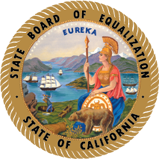Cemetery Exemption
The Cemetery Exemption is available to property used or held exclusively for the permanent deposit of human dead, or for the care and maintenance of the property of the dead, except when used or held for profit (See Section 256.5 of Revenue and Taxation Code). The purpose of the Cemetery Exemption is to protect the final resting place of the human dead (See Section 3(g) of Article XIII of the California Constitution).
Health and Safety Code section 7003 defines "cemetery" as either of the following:
- Any of the following that is used or intended to be used and dedicated for cemetery purposes:
- A burial park, for earth interments.
- A mausoleum, for crypt or vault interments.
- A crematory and columbarium, for cinerary interments.
- A place where six or more human bodies are buried.
A property that is discovered to have six or more human bodies buried on it is not eligible for the exemption unless it is used or held exclusively for burial purposes as described in Property Tax Rule 132(a).
Property Used or Held Exclusively for Burial
Property Tax Rule 132 (b) provides that property used or held exclusively for burial means:
- Property in actual use or prepared made, available, sold or offered for sale or use for burial or other permanent deposit of the human dead;
- Property whose use is incidental to such burial purposes;
- Passively held property that qualifies for the exemption.
Passive Holding of Property
Pursuant to Property Tax Rule 132(d), passive holding of large sections of land for future cemetery use by an established cemetery is a basis for exemption only if:
- The property is held in good faith and exclusively for burial purposes;
- The property is dedicated for cemetery use pursuant to statute or otherwise;
- The property is qualified for use as a cemetery under zoning laws if applicable;
- The size of the tract being held is reasonable based on population and mortality trends and tables for the area, the volume of burial conducted, and anticipated by the cemetery organization holding the property, the likelihood of the cemetery organization continuing burial activities in the area during the period of anticipated use for burial purposes, and similar factors.
Pioneer Cemeteries – (Pre 1900 Cemeteries)
Revenue and Taxation Code section 256.7(a) provides that the need to file a claim to receive the Cemetery Exemption is not required for certain pioneer cemeteries in the unincorporated area of a county where the county assessor is unable to identify a legal cemetery authority to file the claim. Both of the following must apply:
- The cemetery was used by residents of the state prior to 1900; and
- The cemetery is no longer used for current or future interments.
Revenue and Taxation Code section 256.7(b) allows the cancellation of any taxes, penalties, or interest to address future sales of historic cemeteries for tax default where the property would be eligible for exemption from property tax, except that the annual claim form was not filed.
Annual Notice
Pursuant to Revenue and Taxation Code section 256.6, the assessor shall mail prior to the lien date an annual notice to every person or entity that received, in the immediately preceding fiscal year, the exemption as provided by Revenue and Taxation Code section 204. The person or entity has the duty to inform the assessor if the property no longer qualifies for the exemption.
Filing Requirements
To apply for the Cemetery Exemption, a claim form must be filed each year with the assessor of the county where the cemetery is located. The claim form, BOE-265, Cemetery Exemption Claim, is available from the county assessor. The claim form must be filed between the January 1 lien date and 5:00 p.m. on February 15 to receive the full exemption for that year (See Revenue and Taxation Code section 255. If any person, claiming any exemption named in this article, fails to follow the required procedure, the exemption is waived by the person (See Revenue and Taxation Code section 260).
Late Exemption Claims
If a person claiming the exemption fails to file the claim form by 5 p.m. on February 15 of the fiscal year for which the exemption is claimed, but files the form on or before the lien date in the next calendar year, the assessment will be reduced by an amount equal to 90 percent of the reduction that would have been allowed had the claim form been timely filed; or 80 percent of the reduction that would have been allowed with a timely filed claim (See Revenue and Taxation Code section 270).
Properties Acquired After the Lien Date Exemption Claims
Revenue and Taxation Code section 271 allows the cancellation or refund of any tax, penalty, or interest imposed on properties acquired after the lien date, or organizations not existing on the lien date, so long as the following conditions have been satisfied:
- The exemption claim is filed within 90 days from the first day of the month following the month in which the property was acquired, or by February 15 of the following calendar year, whichever occurs earlier.
- The cancellation or refund shall not exceed the number of days for which the property was so qualified during the fiscal year.
- If a person claiming the exemption for properties acquired after the lien date, or for organizations not existing on the lien date, fails to file the claim form within the time required by the applicable provision, the assessment shall be reduced by eighty-five percent of any tax, penalty, or interest imposed upon the property.
- The total assessment exceeds two-hundred fifty dollars ($250).
The following link provides additional information on Cemetery Exemption:
- Assessors' Handbook Section 265, Cemetery Exemption
